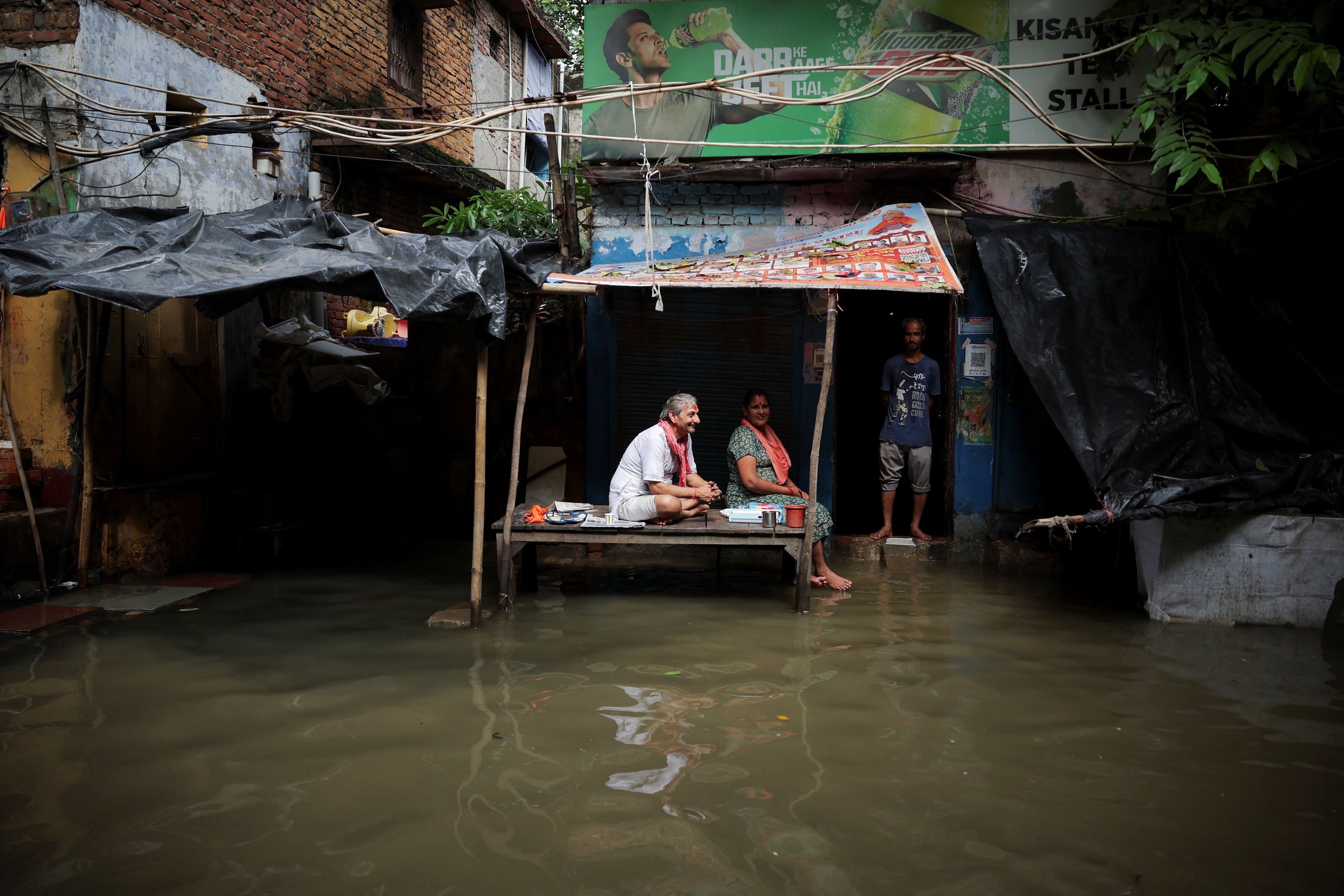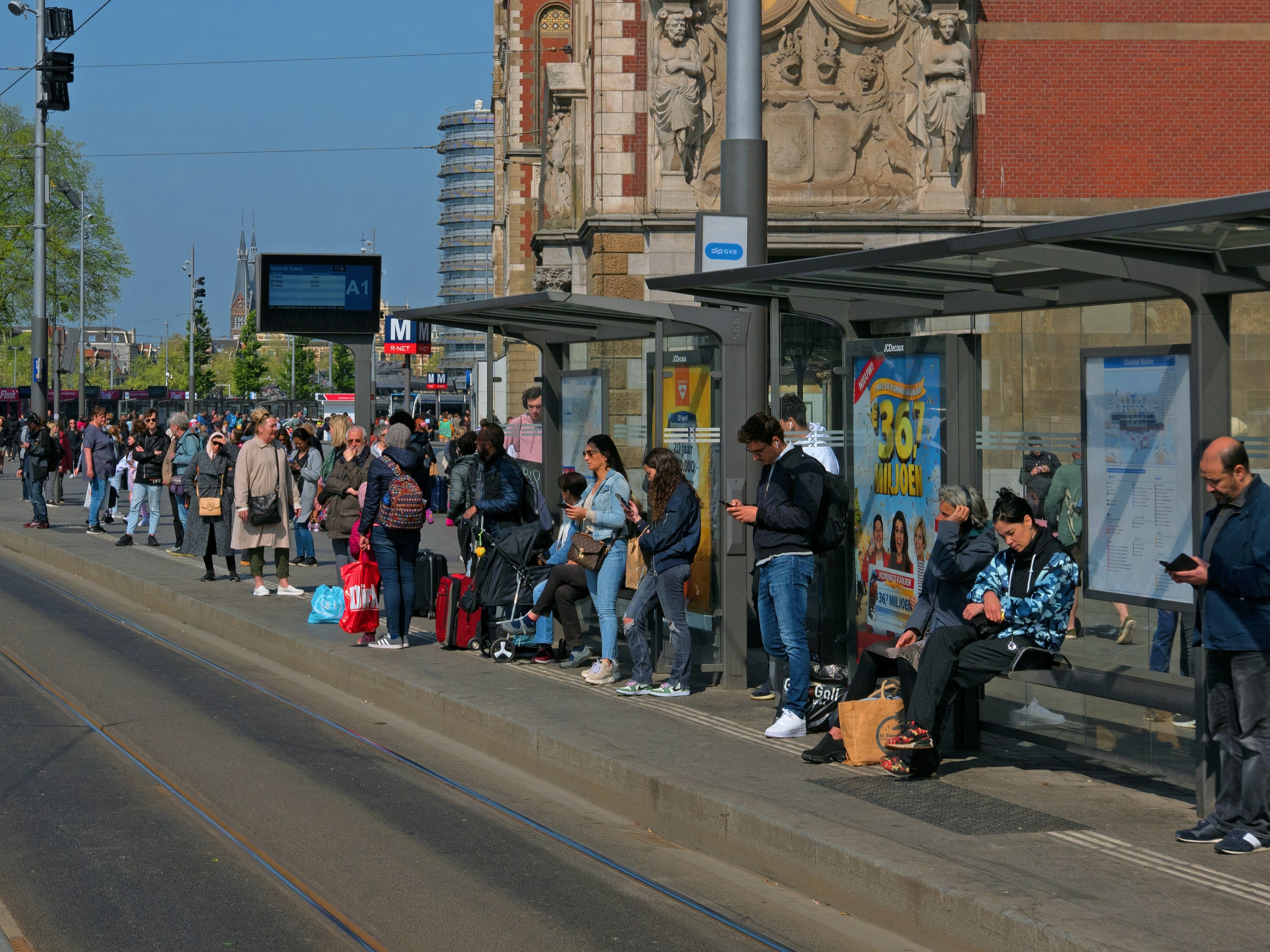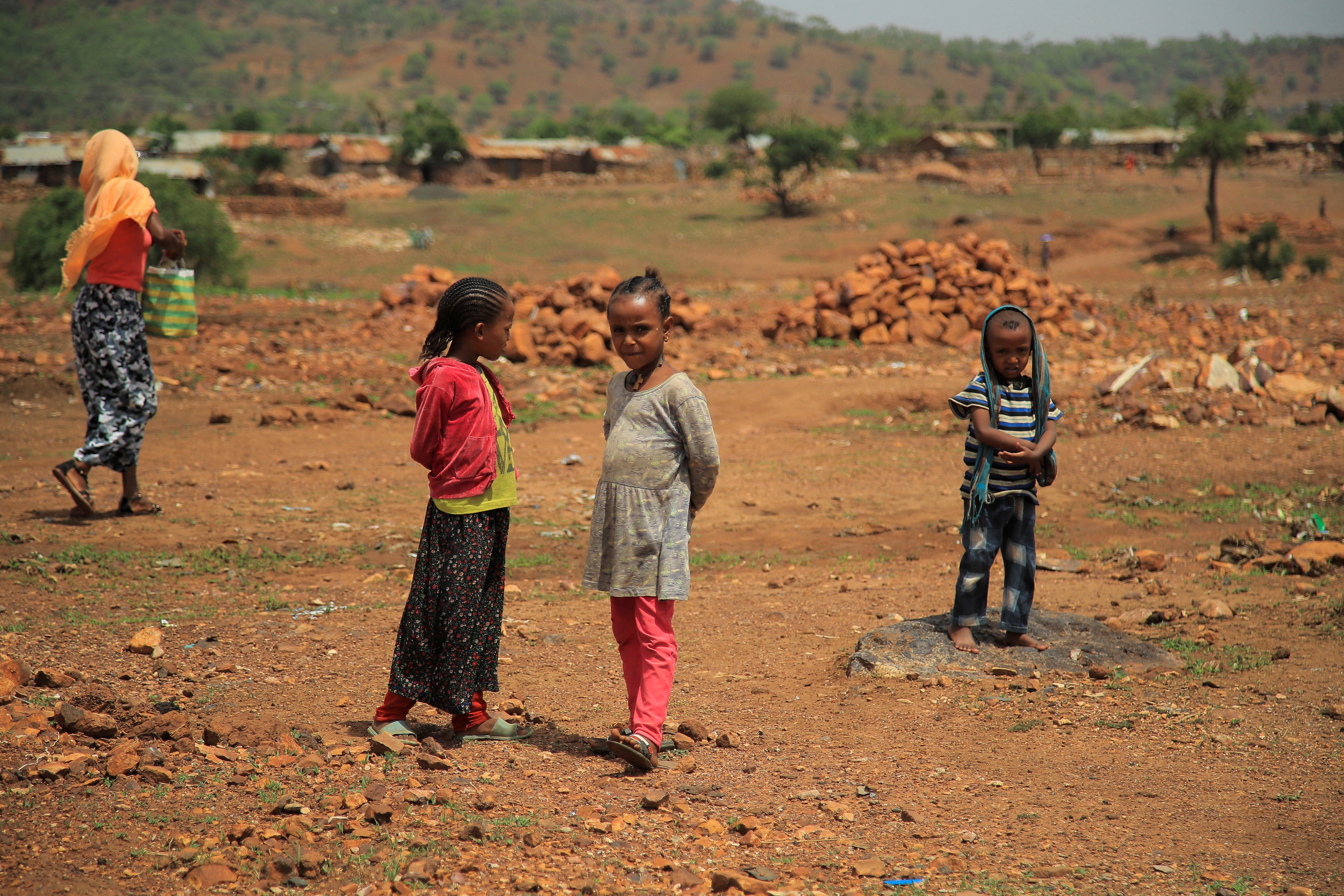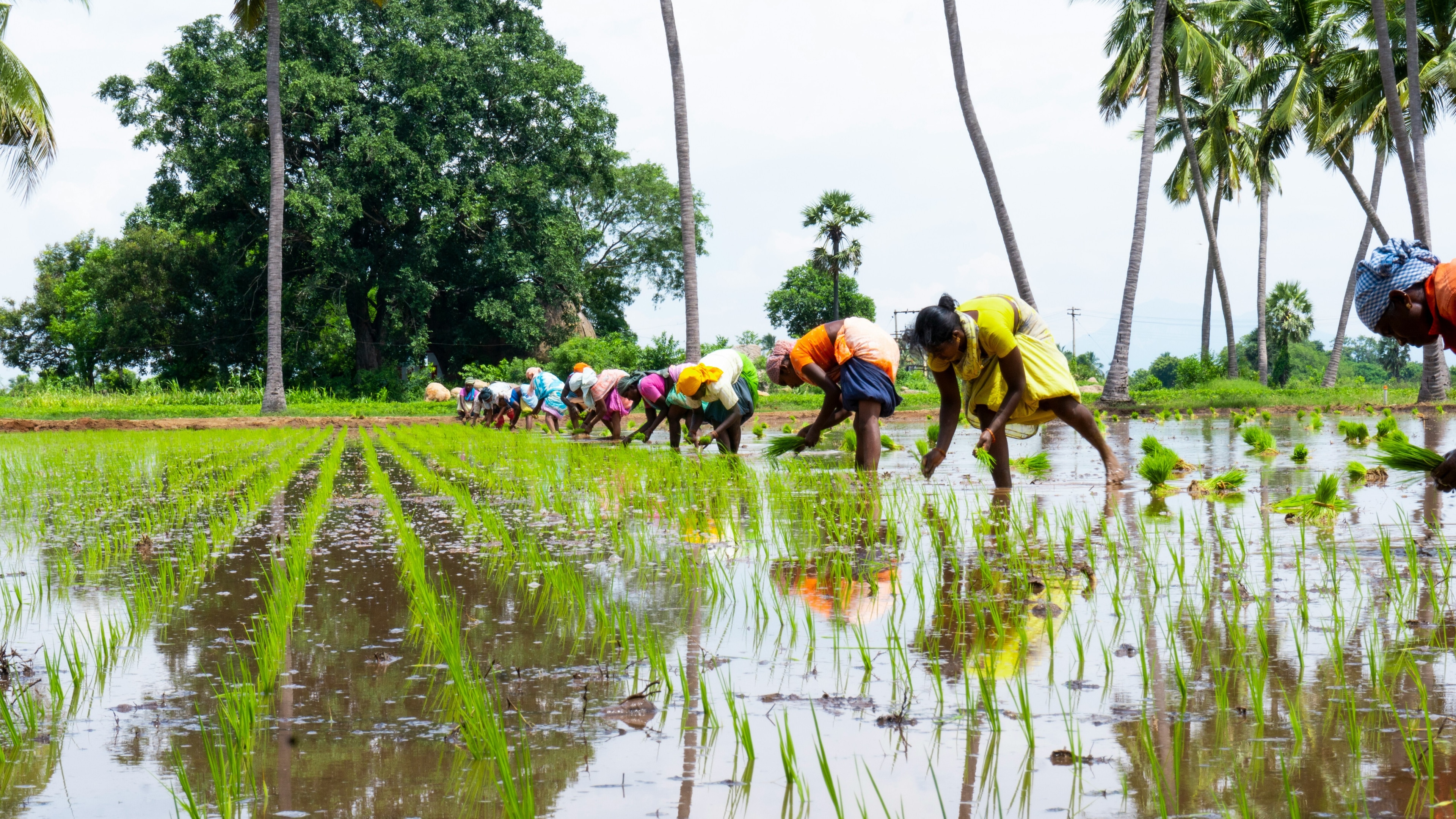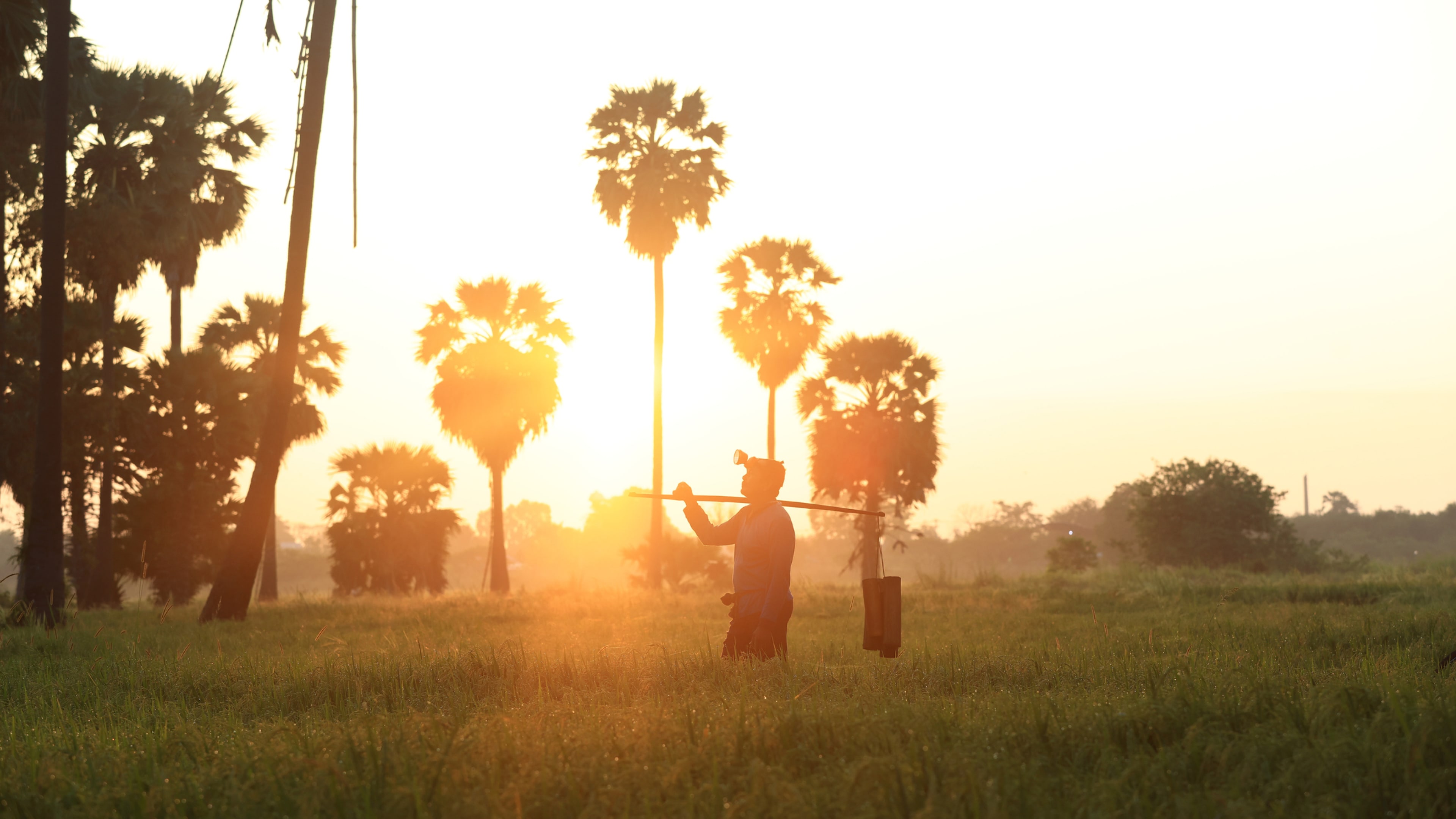Humanitarian crises are on the rise. By 2030, this is how we’ll respond

The present humanitarian system is struggling to cope with a new set of challenges Image: REUTERS/Alexander Demianchuk
Humanitarian crises are happening ever more frequently and growing in scale, while technological advances have the power to transform aid coordination. We spoke to Peter Maurer, President of the International Committee of the Red Cross (ICRC) and co-chair of the Global Future Council on the Humanitarian System, who argues that humanitarian organisations need to work together with a variety of actors to tackle these escalating challenges.
Why is it so important to discuss and try and shape the future of the humanitarian system?
Much of the framework of the present humanitarian system was created in the sixties and seventies to cope with a certain type of humanitarian crisis. What has become evident is that with natural disasters happening more frequently and being more impactful because of climate change, and with violence and conflict spreading and causing instability, fragility and mass displacement of people, this humanitarian system has difficulty coping with the new dynamics. So we are confronted with an important gap between the needs of people and the ability to ensure humanitarian assistance and protection for those people.
A second issue of concern is that conflicts, humanitarian challenges and natural disasters settle in as long-term challenges, which the present system is not fully equipped to deal with. The recent humanitarian crises – be it Ebola, be it the displacement of people from conflicts in the Middle East and Africa – have caused a lot of systemic problems: education systems, health systems, water systems, sanitation systems, housing systems, have been considerably weakened.
For all these reasons, it is important that we start to think how can we build upon the present system but remodel it in such a way that it has an ability to cope with the needs resulting from conflict and natural disaster.

How is the humanitarian system changing? What are the forces driving those changes?
More actors are entering the system and existing organisations are adapting: in embracing new technology; in inventing new financial products; in transforming the system from providing support with goods and materials to cash support, in certain contexts where this is possible. There is a lot going on with regard to the transformation of traditional humanitarian organisations, but many of the changes are still at the stage of pilot projects. The projects have not yet achieved a level of scale that is able to cope with the challenges we are dealing with.
One of the ways you can fill the gap is to throw in more resources, but I think the more promising avenue is to look at innovation; at new forms of partnerships between the private and the public sectors as well as between international and local actors; and to embrace new areas of work.
Medicine, shelter, food, sanitation, water; these have been the traditional areas of a humanitarian delivery system. In today’s world, new needs are emerging. Education is an enormous, powerful need arising out of the present displacement. When millions of kids are missing out on school, delivering educational services becomes an issue that concerns the humanitarian system.
To what extent can technologies of the Fourth Industrial Revolution help accelerate innovation and improve efficiency within the humanitarian system?
There is a working hypothesis in many humanitarian organisations that we do not fully understand yet what the impact of technology will be, but we are starting to see the potential. Big data and increased connectivity allow us to have new analysis on where humanitarian needs emerge and this allows us to target humanitarian assistance in a new way.
New technology at the ICRC allows us to do our traditional work of reuniting families and looking for missing people in conflicts, thanks to new face recognition technology. We are exploring 3D printing, which would potentially give our delegations in the field much more capacity to produce spare parts, design them according to their needs and not necessarily rely on large distribution chains. 'Telecommunication has become useful in areas has become useful in areas that are cut off and where we have difficulty sending in highly specialised doctors.
All this is in prototyping and test phase, and we need to scale it in order to further build the humanitarian system. We will have to combine the skills and knowledge of traditional, frontline humanitarian organisations – understanding the dynamics on the ground and the constraints we encounter in particularly difficult circumstances – with the technological and innovative capacity of the private sector and other relevant actors. We have started doing this. The Global Humanitarian Lab in Geneva is one example, which is bringing the private sector, academia, and humanitarian agencies together to find common solutions. We need a multiplication of such platforms in order to scale in the future.
How important is it to build self-reliance for the most vulnerable in host countries?
Self-reliance is not always possible; we have to acknowledge that there are situations of dramatic crisis which will force us to substitute non-existing public delivery systems. In other situations, the whole issue is how to move from the phase of dependency into the phase of self-reliance. This requires much more flexible, sophisticated interactions between different actors: those who have a strong understanding of the complexities of fragile contexts and those who are ready to invest in such contexts in order to strengthen self-reliance.
There are also legal frameworks that are restricting self-reliance. At the present moment, for instance, in many countries refugees have no access to jobs, to markets, and to certain activities. Regulatory frameworks need to change as much as the support structures need to change.
How can we improve accountability and tackle corruption in the humanitarian system?
The issue of corruption in the humanitarian system is not an issue which is fundamentally different from dangers of corruption in other areas. One of the best ways to strengthen accountability is to engage in principled and law-based humanitarian action. Ensuring the respect of international humanitarian law and principles is one of the key areas necessary to establish accountability chains.
Increasing connectivity will drive greater accountability. Victims and beneficiaries are not passive. They compare the humanitarian delivery of one organisation with the other; they want quality services. So the humanitarian system is seeing increasing consumer-driven accountability.
What will the humanitarian system look like in 2030?
I think it will be a system where local delivery will have a more important say.
Intermediary organisations – meaning the traditional humanitarian actors, which essentially fund-raise in order to provide services for beneficiaries – may have to rethink their model because funders and recipients may be in much more direct contact with each other. The traditional system will be fundamentally changed by this more direct connectivity.
The governance of the system will also most likely change. We have governance structures at the present moment that are characterised by key actors that formed the current humanitarian systems; the UN system, the international NGO system, and the Red Cross and Red Crescent systems. These three systems will see new actors coming to the humanitarian field in the future.
I think it will be a more innovative, a more flexible, a more agile, a more individualised system trying to respond in a targeted way to risks and challenges. It will be a more direct system, where those with a capacity to support and those who need assistance and protection services will be in closer, more direct contact.
What technology or gadget would you most like to see by 2030?
If we’re just talking about me personally, as the President of ICRC, I would like the iPad 5.0, which helps me read the situation when I go to the field. It tells me what the challenges and needs are; the problems; the key actors; and provides maps, statistics and graphics to guide me. I’m dreaming of the next generation where all these wonderful tools are immediately available and help me do the job I’m doing. But I won’t be president of ICRC by 2030!
The Annual Meeting of the Global Future Councils is taking place on 13-14 November in Dubai.
Don't miss any update on this topic
Create a free account and access your personalized content collection with our latest publications and analyses.
License and Republishing
World Economic Forum articles may be republished in accordance with the Creative Commons Attribution-NonCommercial-NoDerivatives 4.0 International Public License, and in accordance with our Terms of Use.
The views expressed in this article are those of the author alone and not the World Economic Forum.
Stay up to date:
Humanitarian Action
Forum Stories newsletter
Bringing you weekly curated insights and analysis on the global issues that matter.
More on Resilience, Peace and SecuritySee all
Shoko Noda and Kamal Kishore
October 9, 2025

